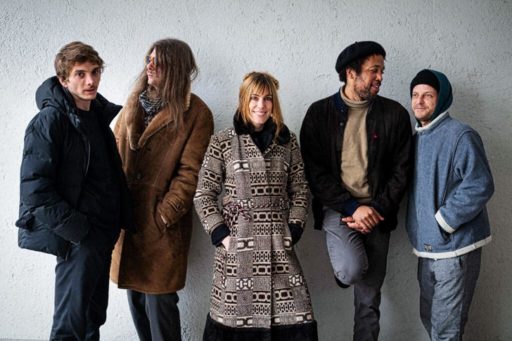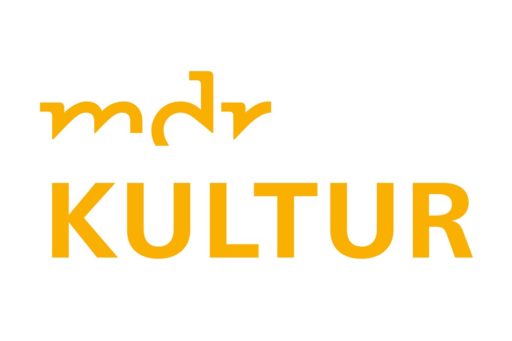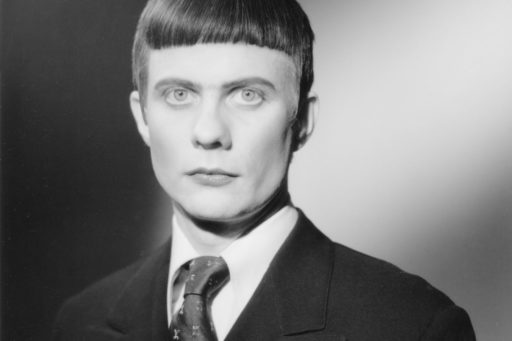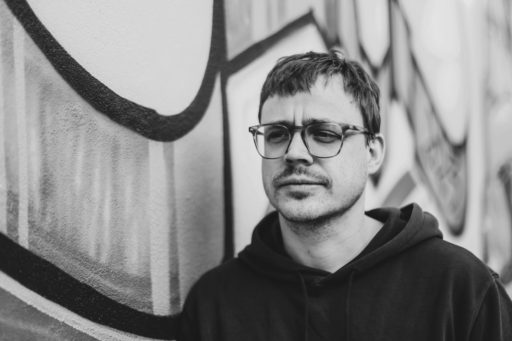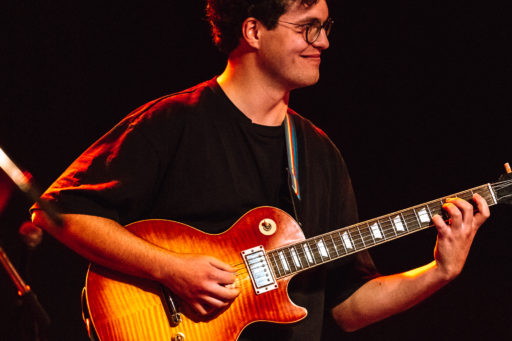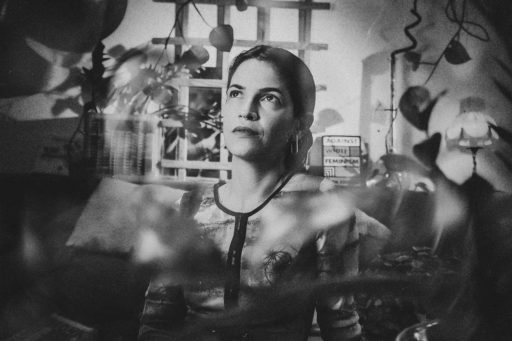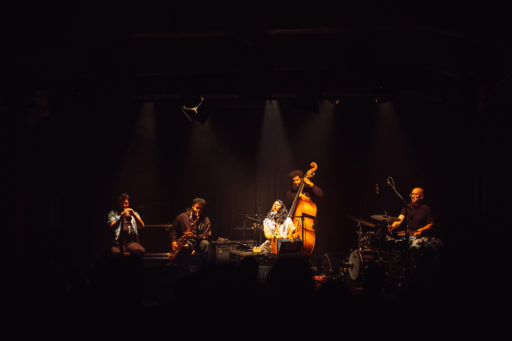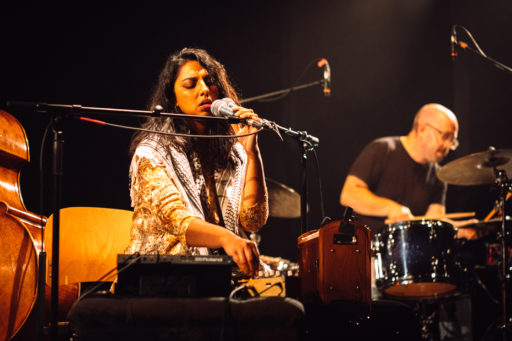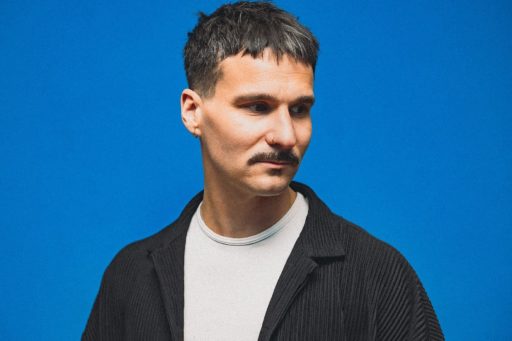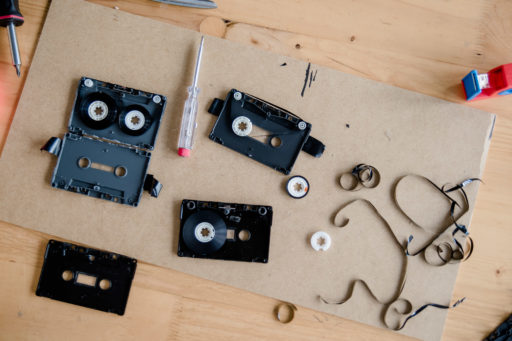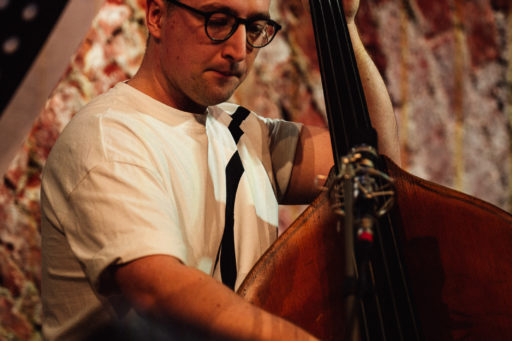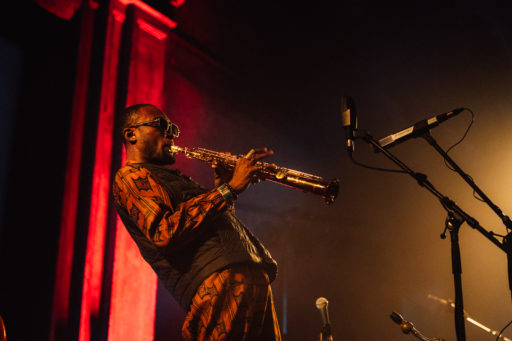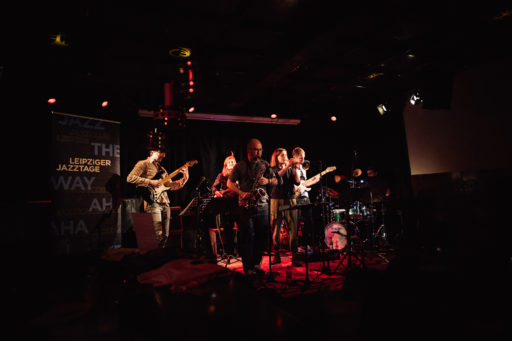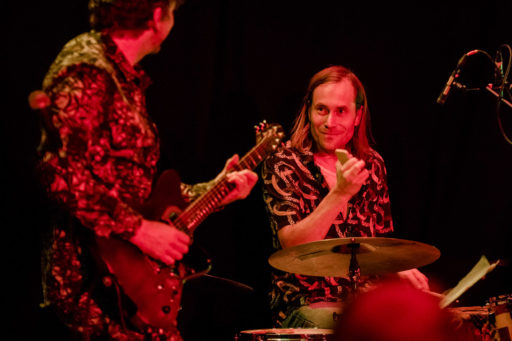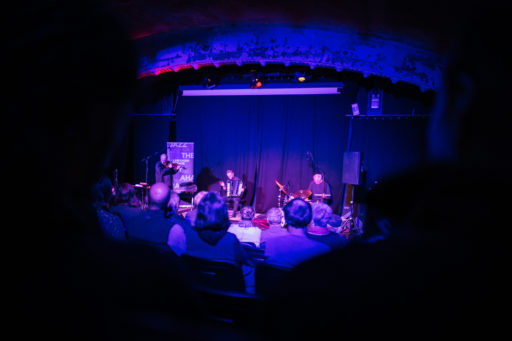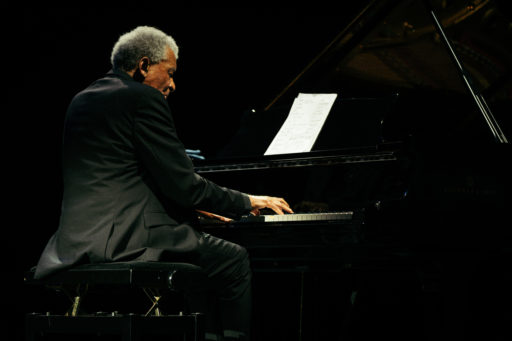The power of improvisation: closing evening at Schauspiel Leipzig
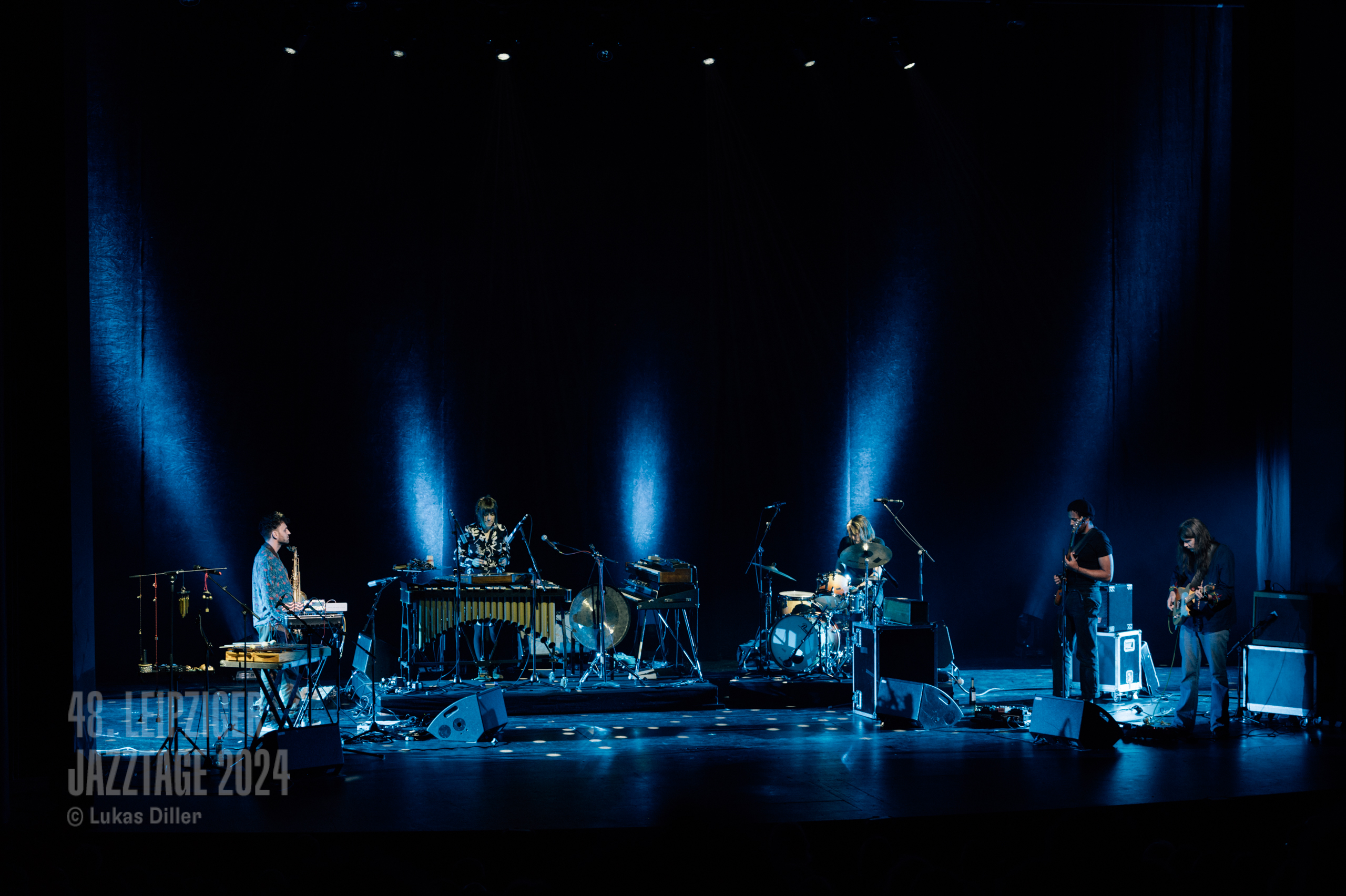
Despite three very different acts, the curators once again succeeded in bringing a concert program to the stage for the closing evening of the 48th Leipziger Jazztage in line with the festival motto "Tell me...". Sylvie Courvoisier and Evan Parker were joined by the band Embryo to create a spontaneous musical narrative as a way of bringing people together. Writing this about a jazz festival may sound obvious. But the power of improvisation was not as evident on every evening last week as it was on Saturday at the Schauspiel.
Swiss pianist Sylvie Courvoisier begins her set this evening - while the welcoming applause is still ringing out - by plucking the strings of the grand piano. This abrupt beginning suggests that music is constantly playing in Courvoisier's head. All she needs is an instrument to make it audible. The New York-based pianist knows how to intuitively combine all stylistic elements from the world of classical piano, jazz and improvisation to create her own sound. Melodic-romantic narratives take the place of playing with objects on the grand piano. An abstract boogie-woogie is followed by passages in which she plays the keyboard with her arms and hands, creating expressive worlds of sound.
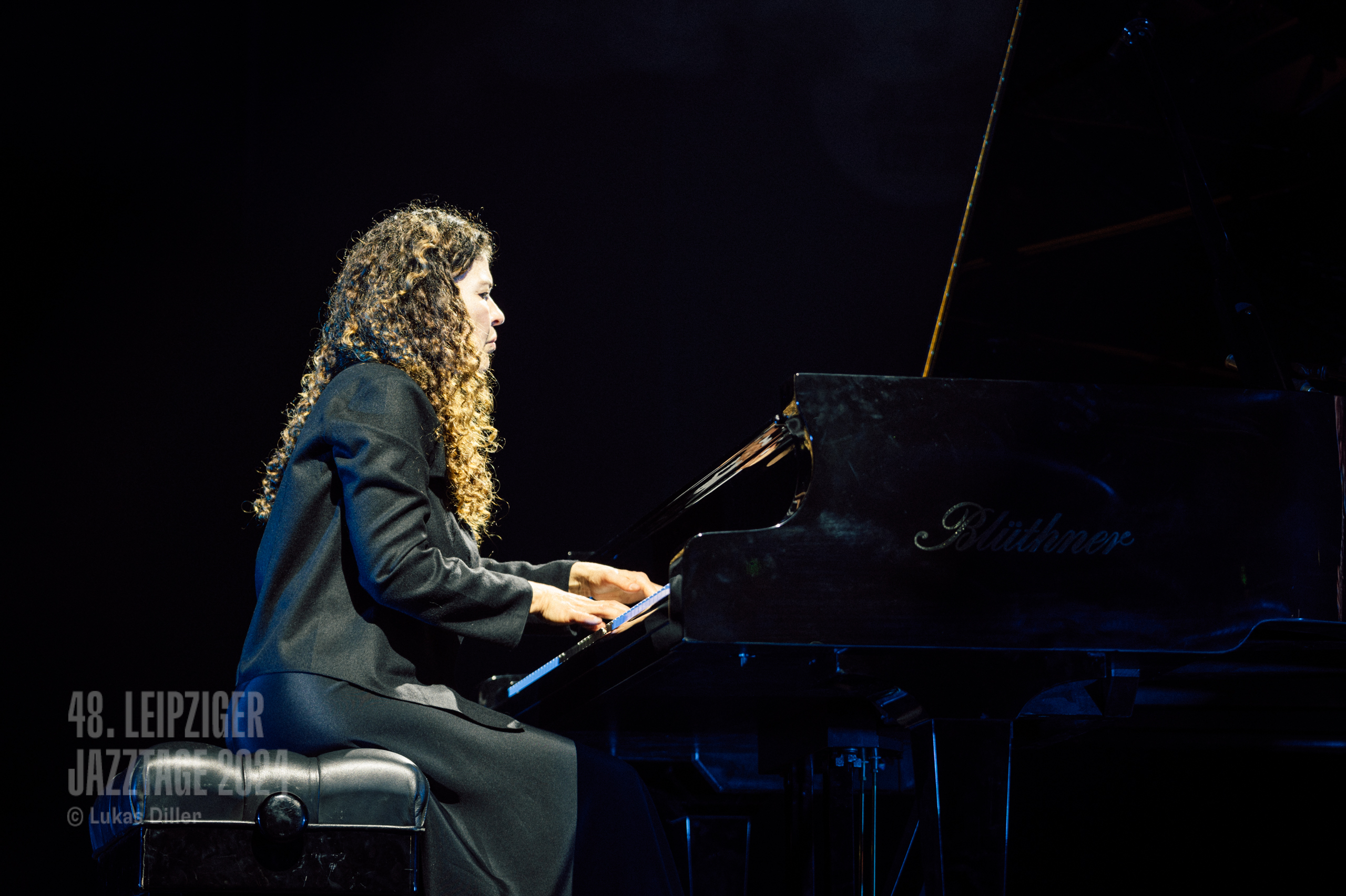
The following duet with saxophonist Evan Parker, 24 years her senior, shows that Sylvie Courvoisier is not only a masterful improviser in her solo work. Born in Britten, Parker's career began in the European and American free jazz and improvisation scene at the end of the 1960s, when Courvoisier had just been born. He comes on stage hunched over and with small steps. His playing, on the other hand, barely shows his age: With the help of circular breathing, Parker elicits almost endless chains of sound from his soprano saxophone, usually circling wildly around a single note. He reacts with lightning speed to small changes in Courvoisier's playing. Like her, he seems to bring his ideas into the world spontaneously from the depths of his experience and imagination through the instrument. Here, two masters of improvisation come together, equally driving the logical flow of the music. Two individual voices become one movement, one sound.
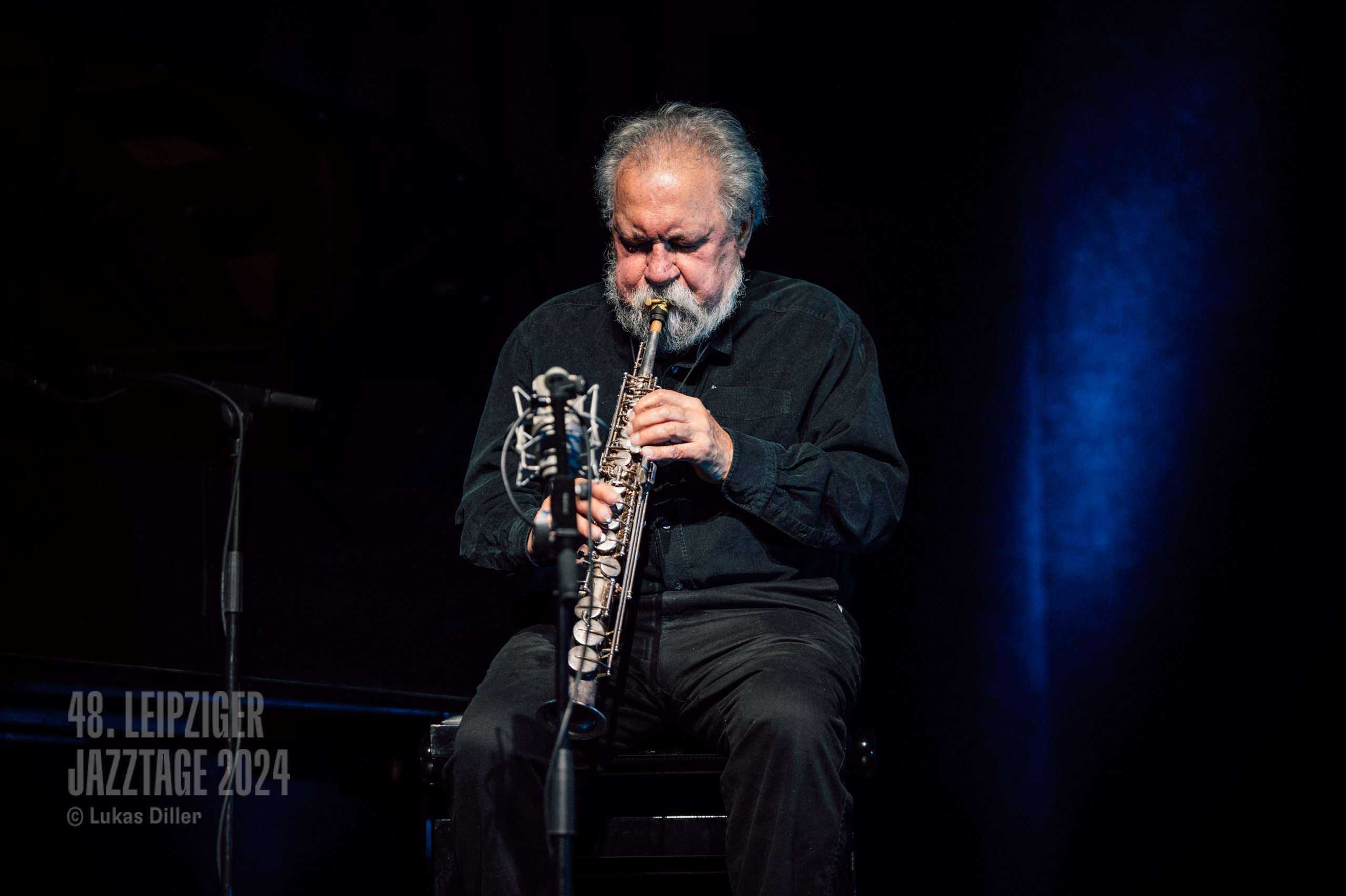
The group Embryo uses improvisation more as an expressive tool. They use repetitive grooves to transport the audience into a trance-like state. This musical approach, which was later adapted by techno, dates back to the 1970s, when experimental jazz rock was in its heyday. Embryo also date back to this period. However, the musicians on stage belong to a younger generation. Multi-instrumentalist Marja Burchard took over the leadership of the band from her father and founder Christian in 2016.
Some elements of Embryo's music seem a little out of date or exoticizing, such as the use of a simplified Arabic scale on the zither or incomprehensible monosyllabic vocal interjections by the leader. But all in all, Embryo's approach still works today. Burchhard's energy on the vibraphone and keyboard is captivating. Rocking drums, electric bass and electric guitar fill the hall with a rich sound. The involvement of the saxophonist and percussionist (the only band members on stage with a university education in music), on the other hand, seems rather superfluous and raises questions about the academization of music. But these can easily be ignored while swaying rhythmically along in the cramped auditorium seats on this long evening.
TEXT: JAKOB OBLESER
